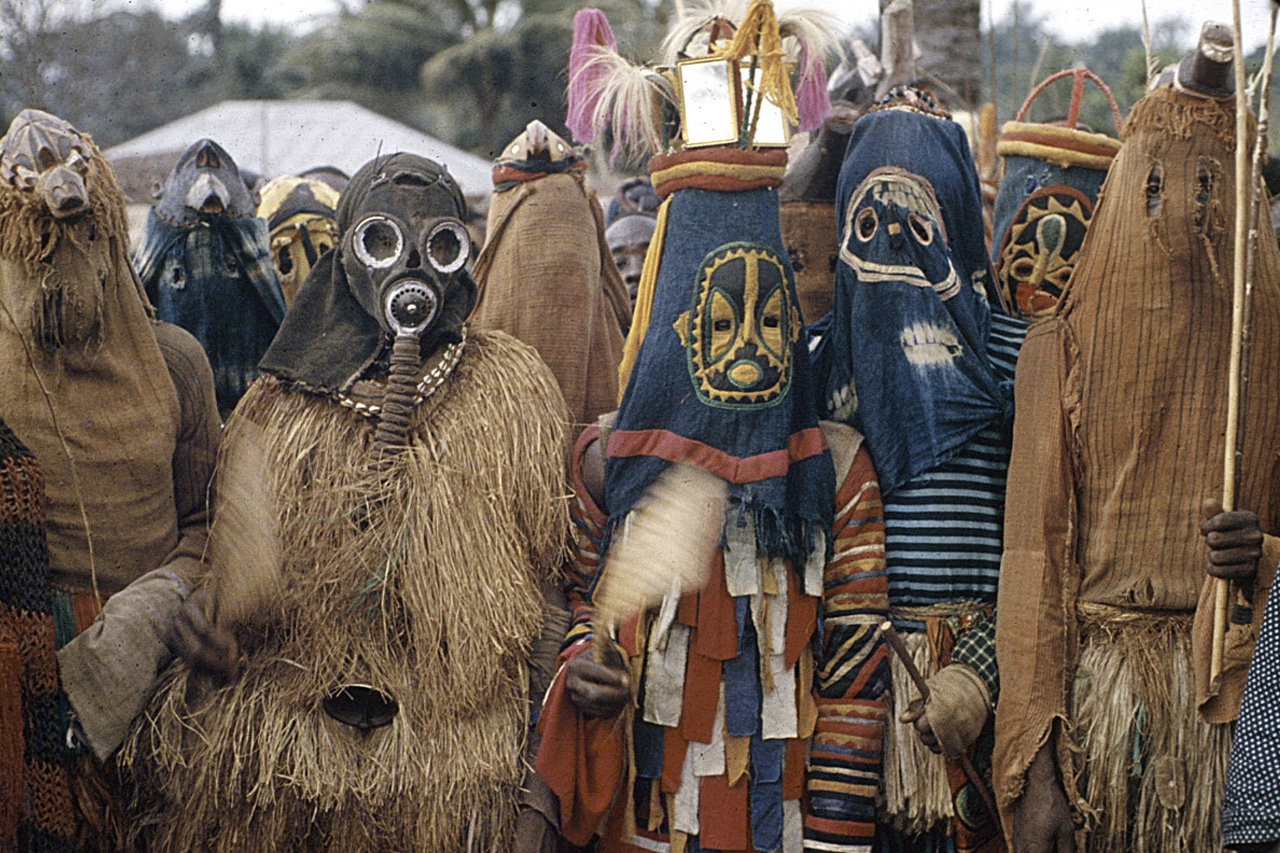This project was completed under the direction of Dr Leon Litvack as a requirement for the MA degree in Modern Literary Studies in the School of English at the Queen’s University of Belfast.
Igboland is the home of the Igbo people and it covers most of Southeast Nigeria. This area is divided by the Niger River into two unequal sections – the eastern region (which is the largest) and the midwestern region. The river, however, has not acted as a barrier to cultural unity; rather it has provided an easy means of communication in an area where many settlements claim different origins. The Igbos are also surrounded on all sides by other tribes (the Bini, Warri, Ijaw, Ogoni, Igala, Tiv, Yako and Ibibio).
The origins of the Igbo people has been the subject of much speculation, and it is only in the last fifty years that any real work has been carried out in this subject: like any group of people, they are anxious to discover their origin and reconstruct how they came to be how they are. …their experiences under colonialsim and since Nigeria’s Independence have emphasized for them the reality of their group identity which they want to anchor into authenticated history. (Afigbo, A.E.. ‘Prolegomena to the study of the culture history of the Igbo-Speaking Peoples of Nigeria’, Igbo Language and Culture, Oxford University Press, 1975. 28.). Also see Catherine Acholonu).
Analysis of the sources that are available (fragmentary oral traditions and correlation of cultural traits) have led to the belief that there exists a core area of Igboland, and that waves of immigrant communities from the north and west planted themselves on the border of this core area as early as the ninth century. This core area – Owerri, Orlu and Okigwi – forms a belt, and the people in this area have no tradition of coming from anywhere else. Migration from this area in the recent past tended to be in all directions, and in this way the Igbo culture gradually became homogenized. In addition to this pattern of migration from this core area, other people also entered the Igbo territory in about the fourteenth or fifteenth centuries. Many of these people still exhibit different characteristics from that of the traditional Igbos – for example geographical marginality, the institution of kingship, a hierarchical title system and the amosu tradition (witchcraft). For some time some Igbo-speaking peoples claimed that they were not Igbo – the word was used as a term of abuse for “less cultured” neighbours. The word is now used in three senses, to describe Igbo territory, domestic speakers of the language and the language spoken by them.(see (A.E. Afigbo,1981: Ropes of Sand, Caxton Press,Ibadan. and T. Shaw:1970; “Igbo Ukwu: An Account of Archaeological Discoveries in Eastern Nigeria”, Faber and Faber, pp. 268-285).
The first contact between Igboland and Europe came in the mid-fifteenth century with the arrival of the Portuguese. From 1434-1807 the Niger coast acted as a contact point between African and European traders, beginning with the Portuguese, then the Dutch and finally the English. At this stage there was an emphasis on trade rather than empire building, in this case the trade consisting primarily of Igbo slaves. With the abolition of the slave trade in 1807 came a new trading era, concentrating on industry (palm products, timber, elephant tusks and spices). At this point the British began to combine aggressive trading with aggressive imperialism. They saw the hinterland as productive, and refused to be confined to the coast. In 1900 the area that had been administered by the British Niger Company became the Protectorate on Southern Nigeria, also incorporating what had been called the Niger Coast Protectorate. Control of this area then passed from the British Foreign Office to the Colonial Office. Long before it had officially been conquered, Igboland was being treated as a British colony. Between 1900 and 1914 (when Northern and Southern Nigeria were amalgamated) there had been twenty-one British military expeditions into Igboland. In 1928 for the first time in their history, Igbo men were made to pay tax – they were a subject people.
This attempt to take over political control of Igboland met with resistance and cultural protest in the early decades of the twentieth century. A nativistic religious movement sprang up (the ekumeku) which inspired short-lived but feverish messianic enthusiasm. The rumours that the Igbo women were being assessed for taxation, sparked off the 1929 Aba Riots, a massive revolt of women never encountered before in Igbo history. However, the engine of imperialism could not be stopped, and once it had begun, Igbo culture would never be the same again.
- ‘Stories Can Be War.’ - August 9, 2021
- The Igbo People – Origins & History - June 9, 2021
- Igbofest Houston celebration, 2019 - June 9, 2019
 +281-788-8133
+281-788-8133 

